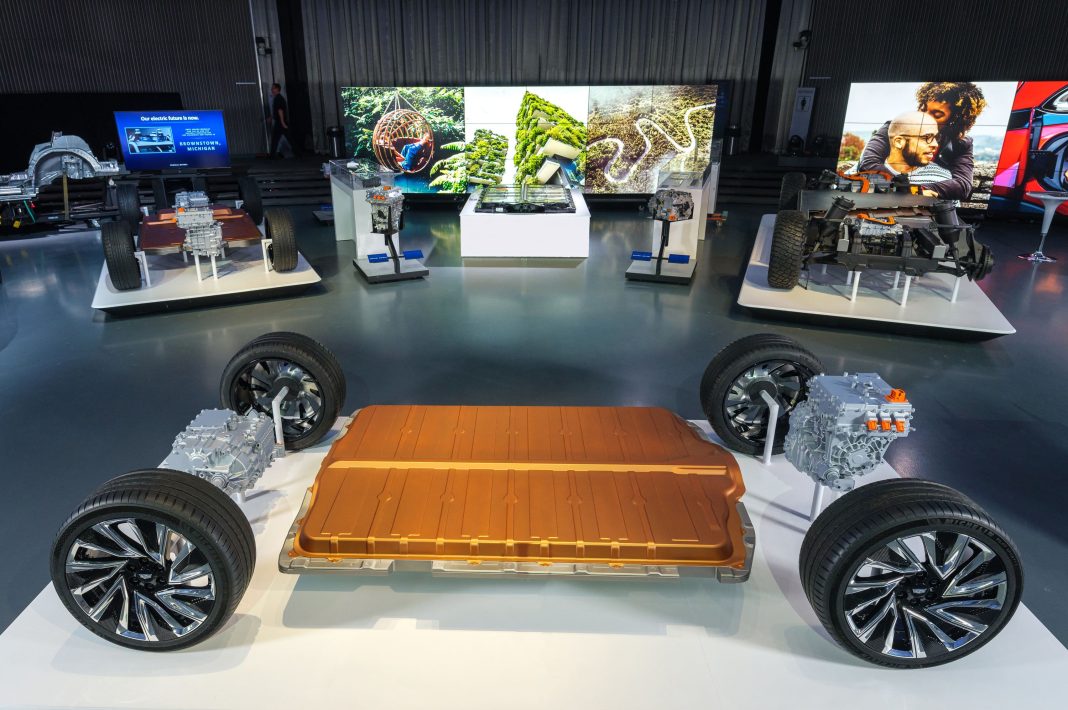In a significant shift that reflects the evolving landscape of the electric vehicle (EV) market, General Motors (GM) has announced it will no longer use the “Ultium” branding for its electric vehicle batteries and supporting technologies. This decision comes after years of heavy investment and promotion, underscoring the challenges the automaker faces as it navigates a complex and competitive market.
On March 4, 2020, GM unveiled its Ultium platform with much fanfare, presenting it as a revolutionary modular system designed to power its future electric vehicles. However, as the company gears up for an investor event, it has decided to retire the Ultium name in North America, although production-related operations like its “Ultium Cells” joint venture with LG Energy Solution will retain the moniker. This move signals a broader reevaluation of GM’s EV strategies, highlighting the company’s need to adapt to changing market dynamics and consumer preferences.
Despite a reported 60% year-over-year increase in EV sales during the third quarter, the automaker’s overall EV sales still represented a mere 4.9% of its total sales. CEO Mary Barra remains optimistic, projecting that GM will produce around 200,000 EVs in North America this year, albeit at a lower target than previously anticipated. The initial goal had been set as high as 300,000 units, reflecting a more aggressive outlook on the potential for EV adoption.
The need for this adaptability is evident in GM’s recent hiring of outside executives from Tesla, including JP Clausen, who now oversees manufacturing, and Kurt Kelty, the vice president of battery. Their insights could be pivotal as GM pivots from its original Ultium pouch cells—comprised of nickel, manganese, and cobalt—to a more diversified battery strategy. This approach includes a substantial $3 billion deal with Samsung SDI to produce prismatic cells, indicating a shift toward a multi-chemistry, multi-supplier framework designed to optimize battery performance for various vehicle models.
This strategic pivot comes on the heels of GM’s substantial investments in marketing, including high-profile Super Bowl advertisements touting the Ultium brand, even before the vehicles were available for consumers. As part of the company’s ongoing commitment to electric mobility, GM is set to feature actor Will Ferrell in its upcoming Super Bowl commercial, continuing its “Everybody In” campaign aimed at making EVs more accessible and appealing.
Moreover, GM is reexamining its manufacturing plans as well. Rory Harvey, GM’s president of global markets, acknowledged the need for recalibration in light of the slower-than-expected EV adoption rates. The company had initially planned to establish a second all-electric vehicle plant in Orion Township, Michigan, but those plans have been delayed as GM reassesses its production capabilities and supply chain requirements. “We always get lessons. We always get learning,” Harvey remarked, emphasizing the importance of being responsive to current customer demands.
Currently, GM operates Factory Zero in Detroit as its sole plant dedicated exclusively to producing electric vehicles. The delay in Orion’s development serves as a reminder of the intricate balance automakers must strike between innovation and market readiness.
In conclusion, GM’s decision to retire the Ultium name represents more than just a branding change; it reflects a critical moment of introspection and adaptation in a rapidly changing automotive landscape. As the company strives to regain momentum in the EV market, it will need to leverage its extensive resources, learn from recent experiences, and remain agile in response to consumer needs. The road ahead for GM is undoubtedly challenging, but with a willingness to innovate and adapt, it may yet find a path to success in the electric future.

